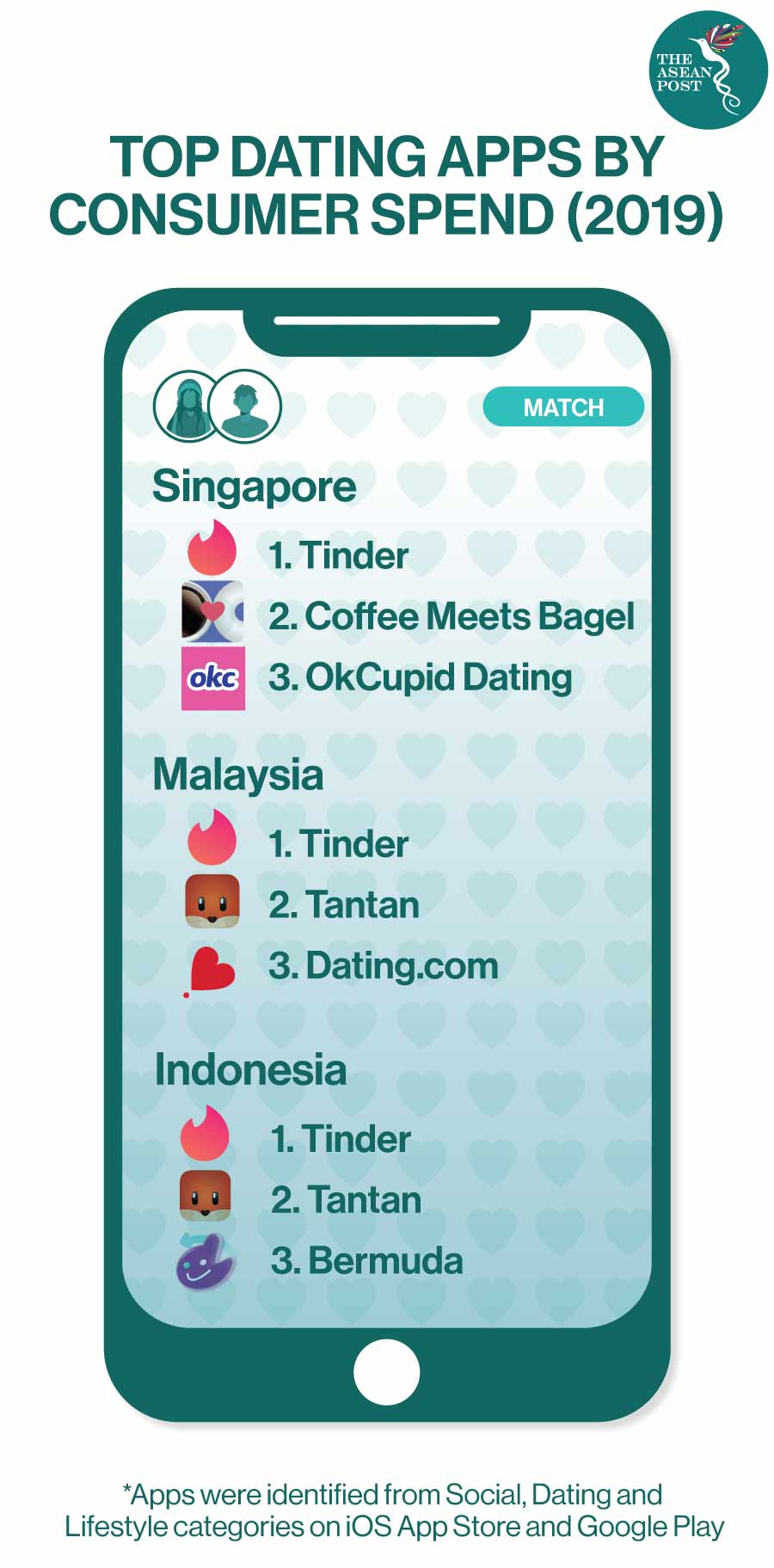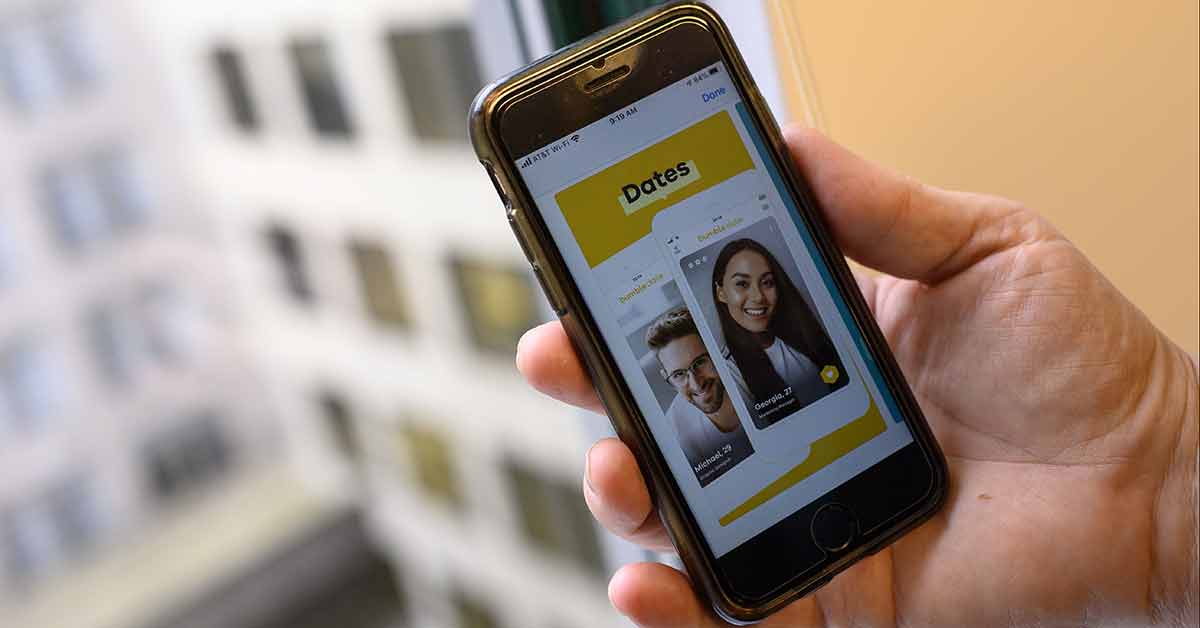When the COVID-19 outbreak began, some observers initially predicted that online dating would take a hit from the pandemic as many are staying indoors and practicing social distancing. However, media reports claim that dating apps are instead, booming.
For instance, in the United States (US), between September and October 2020, data from market intelligence firm Apptopia show that major dating apps grew considerably. Dating app Match grew 21 percent, OkCupid grew 21 percent and Bumble grew 16 percent.
Similar increases have also been seen in other parts of the world such as in China. A report released by mobile dating app Tantan stated that the average time people spent on the app in February increased over 30 percent compared with the average usage pre-pandemic.
During the outbreak, youths – those born around 1995 and after 2000 – have become the top users of Tantan. They recorded a more than 20 percent increase in messages sent and daily matches, the report noted.
The Birth Of Online Dating
In 1995, Match.com became the first major online dating site in existence. In 2009 and 2010 respectively, dating apps Grindr and Scruff were also launched. Both apps were commonly used by the gay community which helped connect users – single men within a specific geographic radius. In 2012, Tinder was introduced to the world and it quickly became one of the most popular dating apps today. Tinder started the ‘swipe’ trend where users find matches by swiping left or right on their mobile phones.
Since then, there have been a plethora of dating apps developed like Bumble, OkCupid, and Paktor. Even Facebook jumped on the dating app bandwagon and released Facebook Dating in 2018. Some apps even cater to specific target markets such as Minder which is similar to Tinder but for Muslims. It is estimated that the dating market is worth around US$12 billion globally.
According to co-founder of Tinder and CEO of Bumble, Whitney Wolfe – dating apps have become great tools to meet new people. Most times, social media is used to keep in touch with those who are already in one’s circle – whereas dating apps expand users’ networks to various types of people, at a very fast pace.
Ng Jing Shen, co-founder of Paktor – a Singapore-based dating app claimed that by “spending 10 minutes on a toilet bowl swiping on potential matches, you essentially ‘meet’ more new people than you possibly would in a year.”
Dating apps are also breaking barriers and changing social norms. An example of this is Bumble – which only allows women to start the conversation with the man that they have been matched with on the app.
“Traditionally speaking in real life, women wouldn’t have made the move. They generally don’t because society says that’s not the right way to do it and society judges them for that,” explained Wolfe.
In the United States (US) and Europe, online dating has also become inclusive for the LGBTQ community – such as Her which is an app for lesbians and bisexuals.
Southeast Asia
ASEAN member states too are not far behind when it comes to online dating. However, despite the growing number of dating apps available in Southeast Asia, online dating is historically frowned upon especially in conservative countries like Brunei and Indonesia.
Initially, Tinder did not even include Asia as their target market as pre-marital sex and the ‘hook-up culture’ are strongly condemned by local society.
However, in recent years, dating apps still managed to make their way to Southeast Asia, especially among busy executives who prefer a faster way to meet people than the time-consuming traditional approach. In 2019, Singaporeans spent US$7.1 million on dating apps, an increase from US$5 million in 2018 and US$3.9 million in 2017, while Malaysians and Indonesians spent about US$5.8 million on dating apps.

Singapore’s Paktor has grown to become one of the biggest dating apps in Asia, and has some 15 million users in Taiwan, Singapore, Malaysia, Indonesia, Vietnam and Thailand. Nevertheless, Tinder remains the leader in Southeast Asia.
Swipe Culture
Commenting on the soaring dating app use in the pandemic, Ash Nadkarni, an Associate Psychiatrist and Instructor at Harvard Medical School said that “as people become more isolated, the desire and need to establish some sort of intimacy may also be increasing as a coping mechanism.”
Just like social media, dating apps serve as a way to connect with people while self-isolating.
But the wonders of technology do not come without a price. Just last year, a Malaysian man was sentenced to five years in jail for deceiving and cheating a woman of SGD68,000 (US$48,000) by pretending to be a silver trader by the name of “Daniel” on a dating app. In December 2018, a British backpacker, Grace Millane was killed by a man in Auckland, New Zealand after they met on Tinder. Many cases of rape, fraud, peeping toms and other crimes related to dating apps have also been reported in recent years.
Technology has paved the way for strangers to network and fall in love. Potential matches on dating apps seem to be limitless – despite the many flaws that come with it. On a positive note, it is believed that 30 percent of relationships will start online by 2026.
Related Articles:
